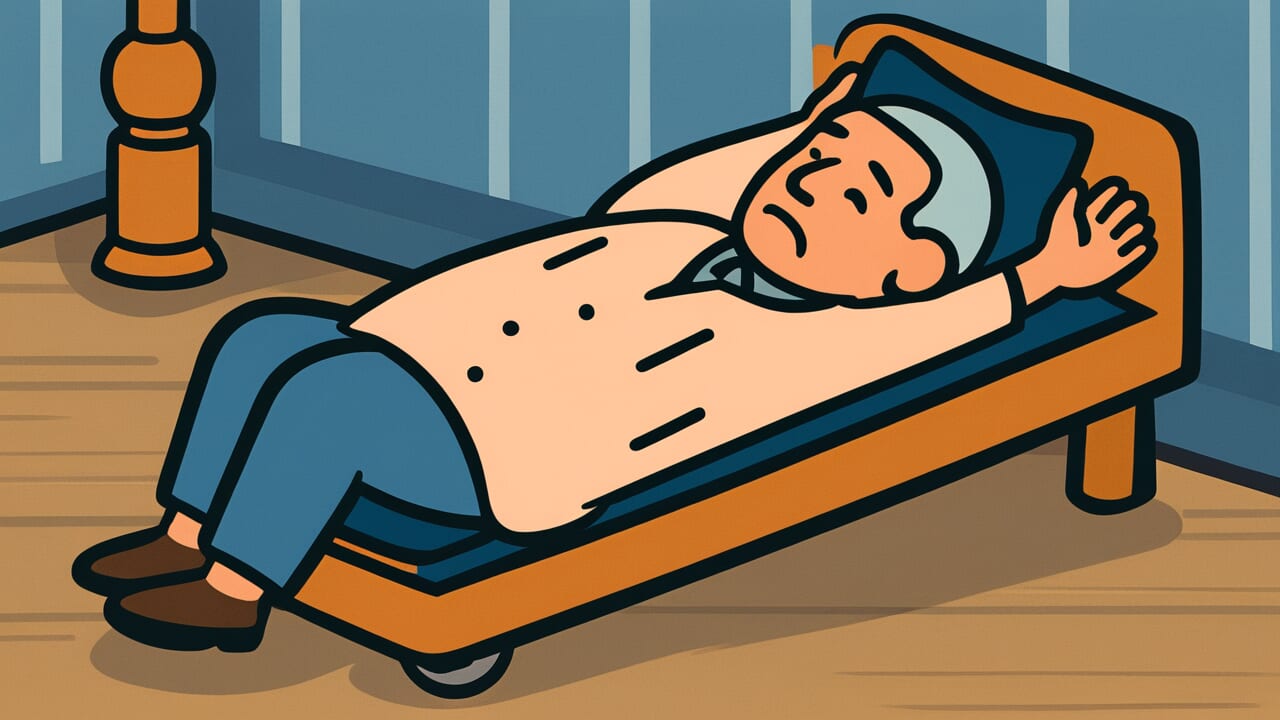How to Read “When you grow old, you return to foolishness”
Toshiyoreba gu ni kaeru
Meaning of “When you grow old, you return to foolishness”
“When you grow old, you return to foolishness” is a proverb that means judgment declines with age, leading to foolish behavior. As people become elderly, making decisions and judgments that were once natural becomes difficult.
Sometimes they even behave like children. This proverb describes the natural phenomenon of human aging.
This saying is mainly used when elderly people’s words or actions are hard to understand. It also explains how someone who was once wise loses judgment with age.
It’s not meant with bad intentions. Rather, it exists as a way to accept the unavoidable reality of human aging.
Today, people tend to avoid using it out of consideration for the elderly. Still, this proverb has been passed down for generations as an honest expression of life’s truth.
Origin and Etymology
The exact origin of this proverb in historical texts hasn’t been identified. However, we can make interesting observations from how the phrase is constructed.
Let’s focus on the expression “return to foolishness.” The word “return” means going back to an original state. So this proverb says that when people age, they “return to foolishness.”
But return to what state? The answer is early childhood.
Babies and young children have undeveloped judgment and knowledge. They can’t understand many things yet. People gain wisdom as they grow, accumulate experience, and become wiser.
However, this proverb expresses how at the end of life’s long journey, judgment declines again. People return to a state similar to their childhood. It represents the full circle of human life.
Japan has long had philosophical traditions comparing human life to the four seasons or a circle. Birth, growth, maturity, and decline.
This proverb likely emerged from such a worldview. Ancient people observed how memory fades and judgment dulls in old age. They saw this as “returning to childhood” and expressed it frankly.
Usage Examples
- When you grow old, you return to foolishness—my father has started repeating the same stories over and over lately
- The company president was once sharp, but when you grow old, you return to foolishness—his judgment errors have become noticeable
Universal Wisdom
The proverb “When you grow old, you return to foolishness” contains a fundamental truth about human existence. It’s the solemn fact that no matter how brilliant someone’s mind is, they cannot resist the flow of time.
When people are born, they are helpless beings who know nothing. From there, they desperately learn, accumulate experience, and gain wisdom.
Some achieve success in society. Others master specialized knowledge. But this proverb teaches that even the brilliant peak of intelligence is not eternal.
Why was this proverb created and passed down through generations? Because humans are beings who must face their own limitations.
We all must eventually confront our declining selves. This proverb represents our ancestors’ courage to face that reality head-on rather than look away.
At the same time, this proverb contains deep compassion. It doesn’t blame people whose judgment has declined with age. Instead, it shows kindness by recognizing this as a natural human condition.
We all walk the same path. By knowing this universal truth, we can deepen our understanding of the elderly. And we can face our own future as well.
When AI Hears This
The human brain has about 86 billion nerve cells forming complex networks that process vast amounts of information in an orderly way. To maintain this order, the brain continuously consumes about 20 percent of the body’s total energy.
An organ that’s only 2 percent of body weight demands this much energy because the cost of maintaining high-level order is extremely high.
The law of entropy increase teaches that disorder inevitably increases in closed systems. Life creates order against this law, but to do so requires constant energy input from outside.
A baby’s brain explosively increases neural connections in the first few years after birth. It acquires high-level order like language and social skills. But with aging, blood flow to the brain decreases and cellular metabolism becomes less efficient. Energy supply drops.
Then the most costly forms of order begin to collapse first. Recent memories, complex judgments, and social inhibitions—these advanced functions acquired later in life are lost. More primitive reaction patterns emerge to the surface.
This isn’t simple deterioration. It’s a rational priority choice that life makes under energy shortage. The return to babyhood is an inevitable path that physical laws impose on life.
Lessons for Today
This proverb teaches modern people the importance of living with life’s limitations in mind. The day may come when our judgment declines. That’s why we should value our clear thinking in this moment.
We shouldn’t postpone important decisions.
At the same time, this proverb teaches us humility. You might be young now with a sharp mind. But that won’t last forever.
Don’t overestimate your abilities. Keep learning constantly. And most importantly, have compassion for the elderly.
When you see someone whose judgment has declined, don’t criticize them. Instead, use your imagination to think, “I might become like that someday too.”
In modern society, the population is aging and understanding of dementia is deepening. The lesson of this proverb isn’t just pointing out aging phenomena.
It’s becoming meaningful as wisdom for facing aging while protecting human dignity. Why not start thinking today about your own future and how you treat elderly people around you?



Comments